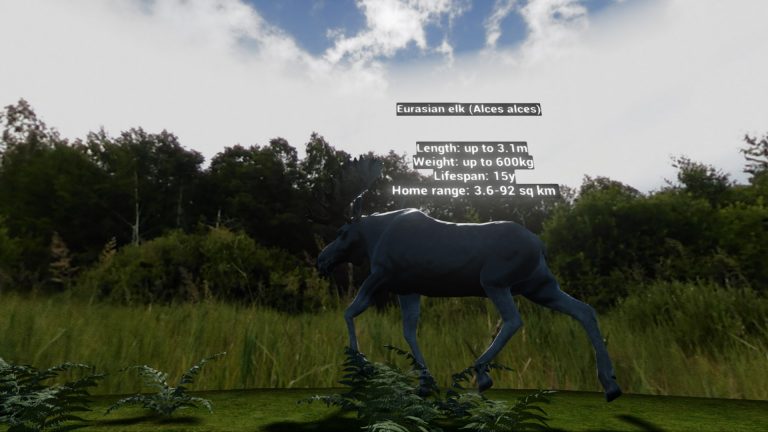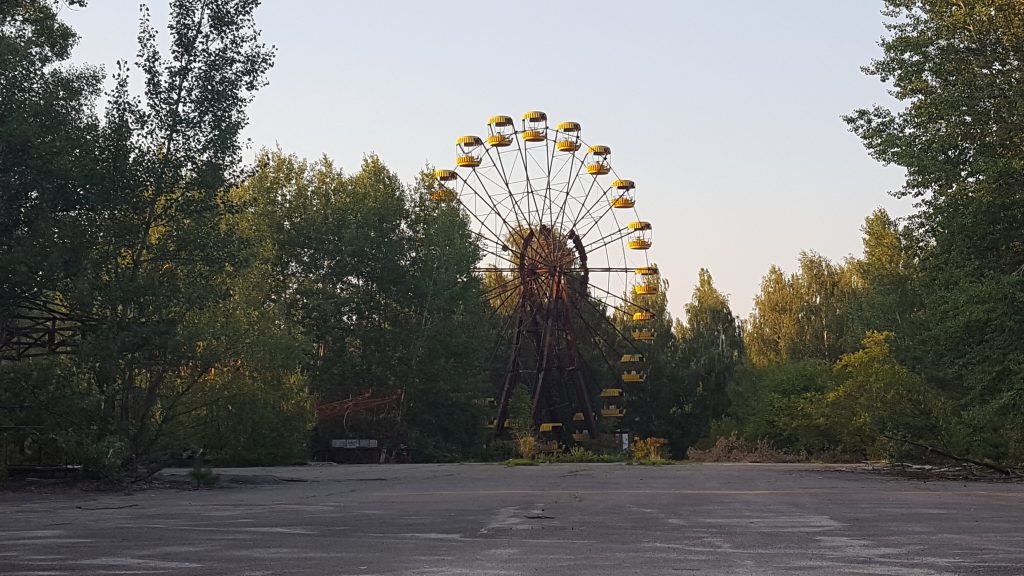THINKlab are excited to be working with University of Salford partners to develop the second phase of the Virtual Chernobyl virtual reality digital programme.
The platform will enable users to ‘visit’ Chernobyl where they can interact and learn more about the radioactive ‘exclusion zone’ in Ukraine. Users will be able to travel through the Chernobyl Exclusion Zone and explore the abandoned landscape where they can understand more about the people and animals affected by the world’s worst nuclear accident.
Developed by the University of Salford’s Professor Mike Wood and Prof Nick Beresford, from the Centre for Ecology & Hydrology, in collaboration with colleagues across the University, the first phase of Virtual Chernobyl meant audiences around the world could experience what it is like to walk within the radioactive wilderness and venture into areas of the exclusion zone which others seldom visit.
The disaster which took place 34 years ago on 26 April 1986 saw 120,000 people, including farm animals evacuated from the 5000 km2 area around the reactor site, which is still abandoned today. The second phase of Virtual Chernobyl, developed in partnership with the State Agency of Ukraine for Exclusion Zone Management, has built on feedback and will mean developments will let users see how animals including bears, wolves, elk and wild boar have increased in population and are making it their home.
The Director of THINKlab, Professor Terrence Fernando commented: “We are excited to further improve the Virtual Chernobyl experience. The developments in hardware for capturing full 360-degree video in much higher resolution, paired with display resolution, and portability advances of virtual reality head mounted displays, will result in a richer user experience. We are excited to co-create this new release with Mike and Nick allowing them to better disseminate their scientific findings to a wider audience.”
Prof Mike Wood said: “Advances in photographic and acoustic recording techniques mean we are now able to estimate the number of animals by observing them directly rather than looking at their tracks. We have embarked on a project using motion-activated cameras and sound recorders to investigate wildlife in different areas of the exclusion zone and evaluate the influence of radiation on animal populations. Through ‘Virtual Chernobyl’ people can get a real sense of the truly unique Chernobyl environment, from which people have been excluded.”
The Chernobyl wildlife research has been featured on the BBC and Channel 4 News, with ‘Virtual Chernobyl’ being showcased at the Manchester Science Festival, Museum of Science & Industry, various scientific meetings and at the International Atomic Energy Agency (IAEA) in Vienna. ‘Virtual Chernobyl’ has also been used to support research-led undergraduate and postgraduate teaching at Salford.

